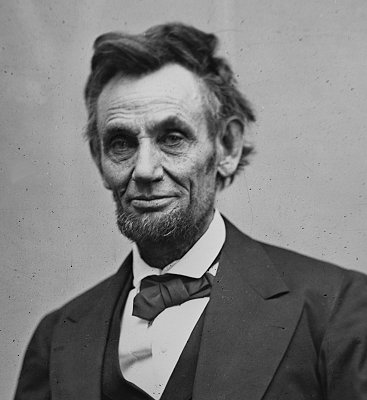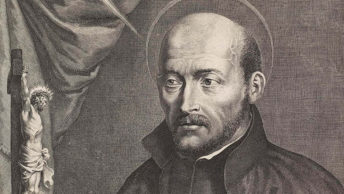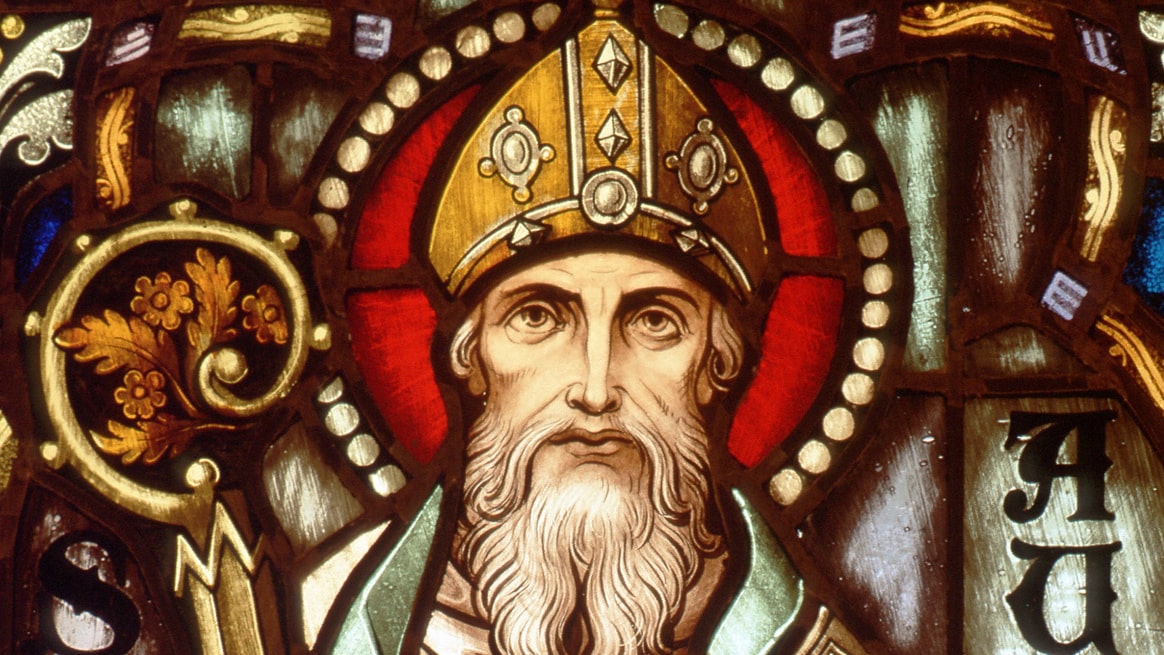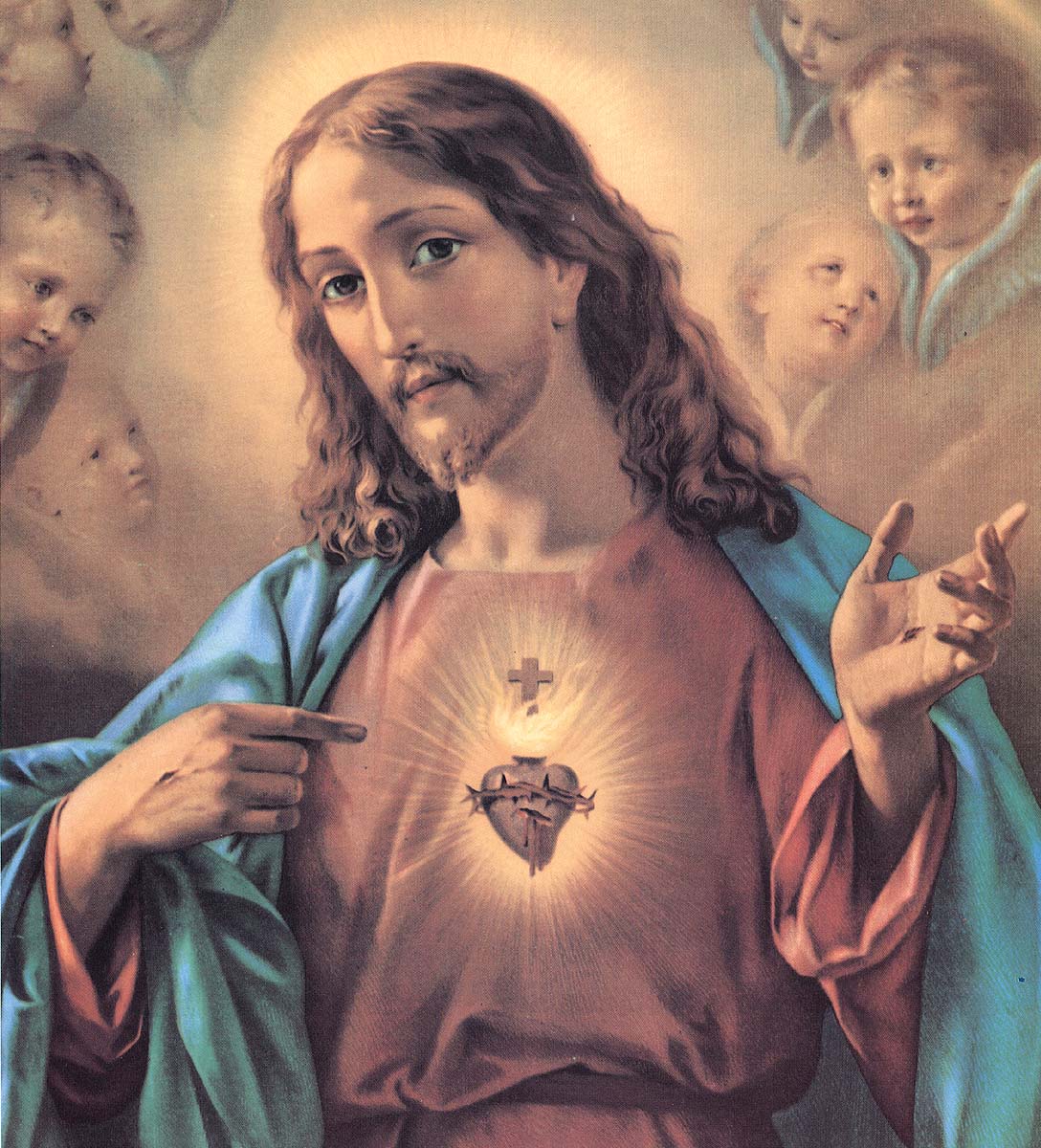Once upon a time there was a very sensitive, idealistic young man–we’ll call him Paul–who was greatly troubled by the state of the world; the crime, injustice, and lack of Christian charity which he witnessed or heard about every day was very depressing to him. Paul’s family and friends were used to him talking all the time about his desire for a city that would be like heaven on earth, a place where true peace and justice were to be found. Night after night he dreamed of such a place, and he was convinced that, with a lot of work and through God’s grace, such a city could exist on earth. One day Paul announced that he could wait no longer. He packed his few belongings and a simple meal, kissed his family goodbye, and set out in search of the magical city of his dreams. After walking all day, he found a comfortable spot among the trees just off the road. Paul ate his meal, said his prayers, and arranged a smooth spot on the ground to lie down. Then, just before going to sleep, he took off his shoes and pointed them in the direction he would continue following the next day. As Paul slept, another traveler came along. Finding Paul’s shoes, he decided to play a practical joke; he turned them around so that they pointed in the other direction. In the morning Paul awakened, said his prayers, ate the remainder of his food, and started walking in the direction his shoes were pointing. Just before sunset he saw his heavenly city in the distance–though it wasn’t as large or lustrous as he expected, and in fact, it looked strangely familiar. Paul walked down a street that brought back memories of his own, stopped at a door that reminded him of his own home far away, entered, and began to greet the family who lived there–when the truth of the situation became apparent. Taking this as a sign from God, Paul then lived happily ever after in what turned out to be the city of his dreams (White, Stories for Telling, p. 92).
One of the lines everyone remembers from the classic movie “The Wizard of Oz” is Dorothy’s repetition of “There’s no place like home; there’s no place like home.” If we’re fortunate, the reason there’s no place like home is because it’s there we most fully begin to experience God’s Kingdom. In spite of the problems and worries and disappointments of life, we’re called to do our part in recognizing and sharing God’s presence among the people with whom we live and work each day–and our willingness to do this can help make heaven seem to be present on earth.
It’s so often true that what we discover depends on what we’re looking for–and today’s readings challenge us to look at everything from the perspective of God’s Kingdom. The people of Nineveh were willing to do this by doing penance for their sins. Even though Nineveh was large, powerful, and prosperous, its citizens and leaders genuinely repented of their sins at the preaching of the prophet Jonah–and as a result, they were spared from disaster. When we repent of our sins and put God first, everything else falls into place. St. Paul’s words to the Corinthians are an urgent reminder to us; the time is short, and sooner or later each one of us will leave this life behind. Therefore, it’s necessary to give a higher priority to God’s Kingdom than to the values and concerns of this world. This is exactly what Jesus meant when He said, “The Kingdom of God is at hand! Reform your lives and believe in the Gospel!” Simon and Andrew, James and John, and the other apostles took this message seriously enough to follow Jesus; as a result, they became great saints and now share in His glorious and eternal reign.
If we have the courage to answer God’s call, we will transform our lives, and quite possibly the world around us; if we try to see things from His point of view, we’ll gain an entirely new perspective, and discover beauty and value in the most surprising places and situations. For instance, think of someone in your life whom you usually take for granted. That person has hidden qualities, is very precious to God, and–if he or she accepts the gift of salvation–will one day be glorified in God’s Kingdom. Imagine a little bit of that glory shining forth from him or her right now, and try to treat that person with the dignity that a child of God deserves. Think of someone in your life who irritates you, perhaps with good reason. Jesus died for that person, and would have done so even if he or she were the only person in the world needing salvation. If Christ could make the ultimate sacrifice on his or her behalf, perhaps you too can be a little bit more understanding and accepting–and your kindness might even draw forth a similar response. The next time you’re stuck in traffic, you can get angry and mutter under your breath–or you can say a silent prayer for all the other drivers, for all the people you’ve encountered that day, and for all your loved ones. The next time you have a complaint or need to criticize someone, you can choose to sugar-coat it with a compliment; not only will it be easier for the other person to swallow, but you’ll be helping create a peaceful atmosphere instead of an angry one. The next time someone upsets or disappoints you, remember the many times he or she has pleased you or come through for you under difficult conditions; keeping things in perspective this way is very healthy–for both your body and your soul. The next time you’re having a bad day, remember all the good days you’ve had; the best way to forget our problems is to count our blessings. And the next time you’re discouraged because the peace and joy waiting for us in heaven seems so far away, remember that the Kingdom of God is all around us, and can be within us–if our hearts are open.
Abraham Lincoln once said that “Most people are about as happy as they make up their minds to be.” If we decide that our own agenda comes first, we’re setting ourselves up for problems, disappointments, and unhappiness. If instead we decide to believe in and live out the Good News of God’s Kingdom, the Lord’s peace will fill us, flow through us, and change our lives and the lives of others–and this wonderful foretaste of heaven will make all our efforts worthwhile.








